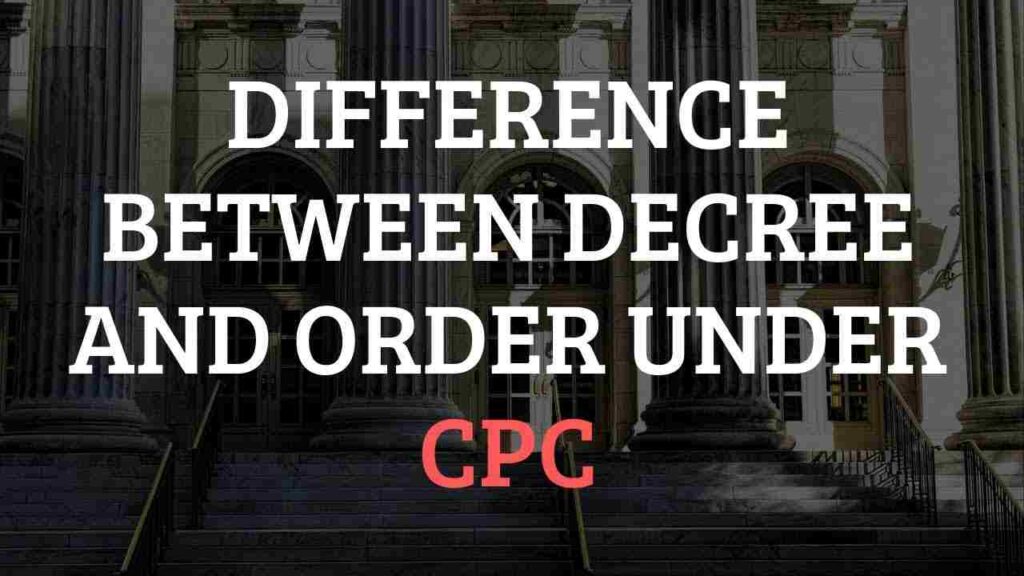
Explore 12 key Difference between Decree and Order
Welcome to the intriguing world of legal jargon! In this article, we will unravel the difference between two commonly used terms in the legal realm: decree and order. Let’s dive in!
12 Difference between Decree and Order
Orders and decrees, two legal terms that are frequently used synonymously, differ in specific ways. In order to discern their differences, one must delve into the intricate realms of legal language. Here, we clarify 12 difference that set decree apart from order, providing clarity where uncertainty may otherwise exist.
Nature of Authority: Orders can be issued by a variety of organisations, including judges, administrative bodies, or even private individuals with legal standing, as opposed to decrees, which come from courts and carry the full force of judicial authority.
Application: Decrees typically apply to situations where a court has jurisdiction and they usually bind the parties to a lawsuit. On the other hand, orders can cover a wider range of circumstances and go outside the bounds of a courtroom.
Finality: Decrees frequently signal the end of a legal proceeding by enshrining a conclusive and unambiguous decision. Contrarily, orders can be temporary, provisional, or preliminary in nature and act as a guideline in the interim while other steps are being taken.
Judicial Pronouncement: Decrees settle the parties’ legal rights and obligations and reflect the court’s decision regarding the case’s merits. Contrarily, orders give instructions or directives for specific actions to be taken.
Legal Consequences: Decrees have broader legal ramifications because they create rights and obligations that must be upheld and enforced. Orders don’t always establish real legal rights; they mostly regulate conduct or behaviour.
Formality: Decrees are frequently formal documents that have been painstakingly drafted and signed by the presiding judge. Orders may be given in a less formal manner, frequently verbally, or in a shorter written form.
Binding Effect: Decrees have a binding effect on the parties involved, enforcing compliance and imposing obligations. Depending on the authority issuing the order and the particular circumstances, the order may be persuasive or binding.
Appeals and Review: Decrees may be appealed or reviewed by higher courts, offering a procedure for consideration and potential revision. Orders are typically subject to the issuing authority’s discretion unless specifically subject to appeal.
Legal Precedence: Decrees may create legal precedents that will guide future interpretations and judgements in cases that are similar to the one at hand. Orders may not have much precedential value because they are more situational and context-specific.
Public Record: Decrees are typically included in official court records, ensuring their permanence and public availability. Orders may not always be made public, particularly if they deal with sensitive or private matters.
Statutory Basis: Decrees frequently reference specific laws or statutes that contain the relevant legal provisions in order to establish their legal justification. Orders may be based on common law principles, administrative regulations, or broader fairness principles while still being derived from legal authority.
Legal Enforcement: Decrees may be enforced by the court through the use of sanctions like fines, imprisonment, or contempt of court proceedings. Depending on the situation and relevant laws, orders may need to be enforced through separate legal proceedings.
Understanding these difference will help you navigate the confusing maze of legal jargon and better appreciate how different decrees and orders are.
Also Read: Explore 12 Key Difference between Coordination and Cooperation